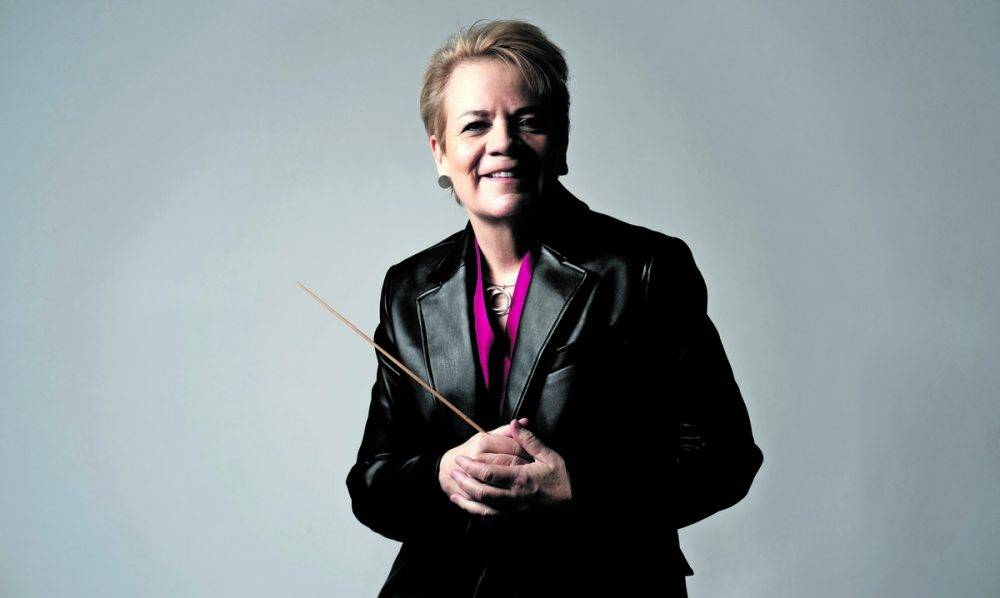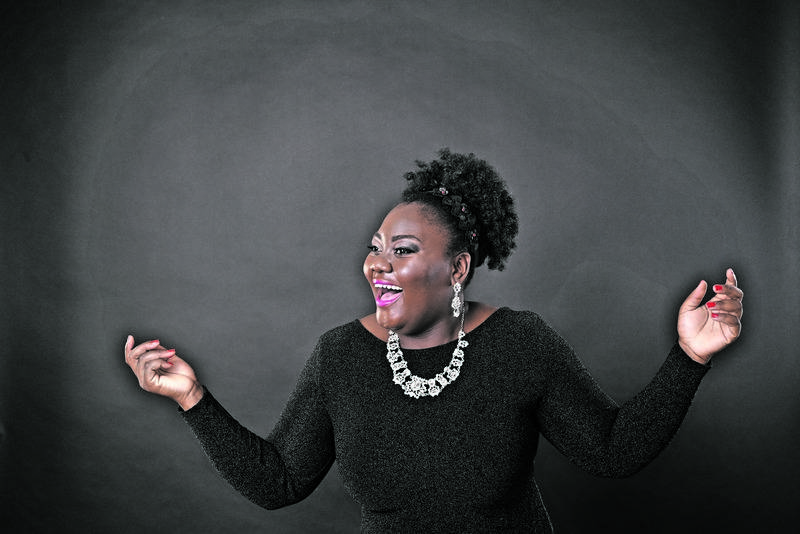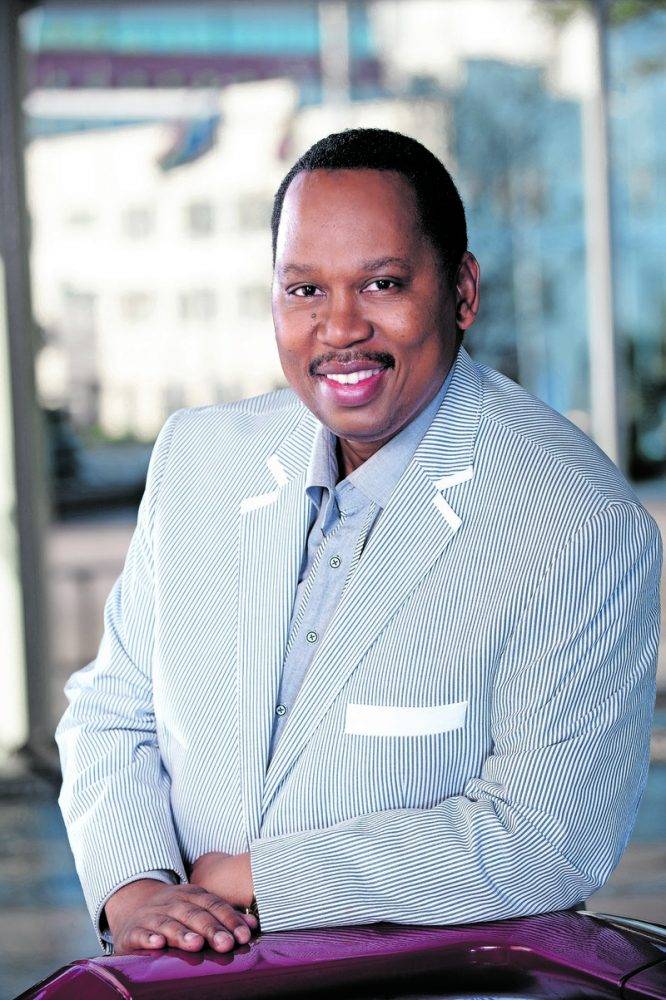Notable: The Mzansi National Philharmonic Orchestra
When Bongani Tembe decided to resign from his job at the Shell and British Petroleum refinery in Durban in the 1980s to become a professional opera singer, his conversation with his father went something like this:
Father: But you know how much of an achievement it is for a black man to work for Shell and BP. You are quitting? You’re quitting to do what exactly?
Son: To sing. I am quitting so I can work as a singer.
Father: This is madness. I know you’re talented and you like this thing but it makes no sense leaving the refinery mfanam — people will always need petrol.
Son: This is true baba, kodwa people have and will always need music more.
The Durban ocean breeze scores our scene with a dense sense of destiny. The dexterous hands of time signal fate and the overture begins with a grandiose opening note — 1985, apartheid South Africa.
It is just a few minutes before 10am and a 24-year-old laboratory analyst stands nervously outside the grand green doors of the African Arts Centre, adjacent to the Playhouse.
Clad in a white lab coat, he holds a brown suitcase in his left hand and his musical instrument is packed neatly within his larynx.
Apprehensive, yet determined, he places his suitcase on the pavement, readjusts his thick spectacles, wipes the sweat off his brow, pats his afro and cues his courage.
After a gentle knock, the door is opened by a young white girl. He unpacks his instrument, introduces himself politely and states his purpose. He is informed the person he seeks is occupied with a class and will be available at 10am. He takes a seat, and waits anxiously.
 Marin Alsop will lead the orchestra on a three-city tour
Marin Alsop will lead the orchestra on a three-city tour
After a moment that feels as stretched out as a symphony, an older white woman approaches. He tunes his instrument. Her commanding presence is almost overwhelming. He embouchures his instrument.
Inquiring about his visit, she stands before him with a conductor’s authoritative aura. He plays his instrument, undeterred: “My name is Bongani Tembe. I was referred to you by a teacher at Technikon Natal. I wish to learn opera, oratorio and classical music. Can you teach me?”
Curiosity in her eyes, she asks, “Can you read music?”
He admits, “No, I cannot read music at this moment. But, I assure you, I am sincere in my pursuit and I’m eager to learn. Please grant me this opportunity.”
She responds, “Sorry, I can’t help you. You can’t read music and you know nothing about opera, oratorio or classical music. And, in any event, I have a lot of students. I’m full.”
With grace, he accepts her decision: “Thank you. Have a great day.”
Despondent, Tembe disassembles his instrument, gathers his belongings and heads towards the exit. Yet, before he reaches the door, the girl intervenes on his behalf, imploring her grandmother, “Oh Granny, he’s such a nice man. Can’t you find a way to help him?”
“Wait! Come here,” with a hint of reluctance, the elderly lady calls out. She takes a piece of paper and pen, jotting something down, and with a thoughtful expression, adds, “I may not be able to assist, but perhaps this gentleman can be of help. Anthony Hanan, 77 Evan Road.”
Tembe accepts the paper, expressing his gratitude with a nod, and exits the premises.
There were no taxis in the inner city for black South Africans in the 1980s. He owns no car of his own. A determined Tembe walks for five hours to reach 77 Evan Road.
Feet burning, akin to his desire, profusely perspiring from both the arduous walk and trepidation, Tembe arrives at a towering door with a buzzer.
He places his suitcase on the ground, extracts a handkerchief from his lab coat, carefully removes his spectacles, wipes his face, and picks up his suitcase. He sets up his courage and presses the buzzer.
 Soprano Cecilia Rangwanasha will be performing.
Soprano Cecilia Rangwanasha will be performing.
A voice from inside brusquely retorts, “There’s no job here!” Tembe steps back, paces about, gathers himself, and presses the buzzer again. “NO JOB HERE!” the voice hurls.
Tembe picks up his suitcase, along with what’s left of his confidence, and leaves. Two blocks away from the house and a long talk with himself later, he decides to head back.
He unpacks his instrument, presses the buzzer and attacks, “Anthony Hanan! I am here for Anthony Hanan!”
The voice on the other side inquires with surprise, “How do you know Anthony Hanan?”
“I got his name from Gwen,” he replies.
And so began the remarkable orchestral odyssey of Bongani Tembe.
“Sometimes difficulty forges the beauty, tenacity, perseverance and commitment of our musicians and administrators to bring something truly wonderful into the world,” he would later say.
The year is 2023 and Mr Bongani Tembe holds bachelor’s and master of music degrees from the prestigious Juilliard School in New York, among countless other musical accomplishments, including being honoured by the French government. He is CEO of the Mzansi National Philharmonic Orchestra (MNPO) as well as the Johannesburg and KwaZulu-Natal philharmonic orchestras.
I arrive at a restaurant for our interview, and upon entering, I find him engaged in a meeting with prospective MNPO partners.
A courteous waiter guides me to my table and promptly informs Mr Tembe of my arrival.
With a joviality equal to his musical ability, he approaches my table, introduces himself with a warm and buoyant demeanour, instructs the waiter to take care of his special guest, and returns to conclude his meeting.
After a few minutes, he joins me, turning the tables as we spend half an hour conversing about my passion for music and family history.
Eventually, I remind him that I am here to conduct an interview, which elicits a cascade of laughter — an allegro con brio before we proceed. I lay out my questions before him like a prepared cue sheet, and in flawless bel canto style, he responds.
What are the origins of MNPO?
The Mzansi National Philharmonic Orchestra is South Africa’s first fully fledged national orchestra. In the past, we had the National Symphony Orchestra during the 1970s, 1980s and 1990s but it sadly closed down in 1998. However, it was primarily an orchestra based at the SABC, not truly a national orchestra. Thus, the MNPO holds the distinction of being the first true national orchestra of South Africa.
Why is the MNPO necessary?
Our orchestra operates as a non-profit public benefit organisation, receiving an annual grant of approximately R21.5 million from the department of sports and arts and culture. The core of our mission is to broaden the orchestral experience throughout South Africa.
Previously, orchestral funding was largely concentrated in three major urban centres: Johannesburg, Durban and Cape Town. Our directive is to redistribute these resources nationwide, making orchestral music accessible and enjoyed by all.
Moreover, we employ music as a unifying force, fostering national unity and social cohesion across all races. This lies at the heart of our second mission.
What are some of the MNPO’s milestones and accomplishments?
The MNPO generated 1 012 job opportunities for orchestral musicians, conductors, soloists and choir members in 2022.
We also focus on community engagement, reaching a wider audience.
Additionally, we have introduced a National Cadetship Programme to increase representation of black musicians and meet the growing demand for local talent in South African orchestras, thus playing a crucial role in nurturing South African musicians and equipping them for successful careers in the performing arts, particularly in the orchestra industry.
 On song: Bongani Tembe, chief executive and artistic director of the Mzansi National Philharmonic Orchestra.
On song: Bongani Tembe, chief executive and artistic director of the Mzansi National Philharmonic Orchestra.
What is the MNPO’s overarching mission and vision?
We endeavour to transform the South African orchestral industry by nurturing and harnessing the talents of young South African orchestral players.
The Mzansi National Philharmonic Orchestra also plays a vital role in projecting South Africa’s musical identity internationally. And we extend our support to regional youth orchestras and other community-based orchestral initiatives. This comprehensive vision defines the essence of who we are.
With classical music being considered ‘highbrow’ how do you ensure the purpose of uniting the country is met?
I’ve always looked at an orchestra as having high translatability — it translates itself into different genres and our audiences always reflect this diversity.
For instance, last year, we had a concert with [artist] William Kentridge to celebrate Wits’ 100th anniversary, something you may consider very highbrow art, but the next day we were in Soweto at the Albertina Sisulu Special School for children with disabilities.
The following month we were in Mpumalanga and Limpopo — we went grassroots because we believe in exposing orchestral music to everyone for them to enjoy and utilise it in whatever format they choose.
Moreover, we had a concert against xenophobia with the likes of Thandi Ntuli, Msaki, PJ Powers, Lebo Mashile and many more, bringing different genres into our work.
Not only [do we link with other] musical genres but we also collaborate with various art forms. We like cross-cultural collaborations, involving other parts of the creative sector.
We have worked with Gregory Maqoma’s Vuyani Dance Company, the Emmy Award-winning filmmaker Francois Venter and graphic artist Duncan Stewart, for example.
How and why did you get involved with MNPO?
I have been running the KZN Philharmonic Orchestra since 1994.
My wife [Linda Bukhosini] and I were lucky enough to study at Juilliard University. We had always said we’ll go overseas, learn and experience, then come back home to give back. With the advent of democracy, we came back.
And the music keeps giving.
I do want to work on stage and behind the scenes. I realised that without us working in management, we can’t change policy.
The beginning of Tembe’s journey reads like an introit, as the journey itself is nothing short of being liturgical, from falling in love with opera at the age of 12, listening to American tenor Mario Lanza’s LPs, to being turned down by various music institutions because of his race, quitting a lucrative job and following his passion, paying for his own masterclasses, achieving many firsts as a black South African classical singer and being recognised as one of the forerunners of the South African orchestra landscape.
With Mr Tembe at the helm, the Mzansi National Philharmonic Orchestra had a triumphant, sold-out three-city tour last year. The orchestra is set to embark on another tour this month.
It will be led by Marin Alsop, a trailblazing conductor who holds the distinction of being the first woman to head major orchestras in the US, UK, South America and Austria.
Alongside Alsop, the orchestra will feature the exceptional talents of Masabane Cecilia Rangwanasha, a celebrated soprano hailing from Limpopo. Rangwanasha’s achievements include being named as a BBC Radio 3 New Generation artist, winning the Cardiff Singer of the World competition and being .the esteemed runner-up for the Daily Maverick’s Artist of the Year last year.
In a delightful synchrony, the conductor and soloist, complemented by a significant representation of women in the orchestra, create a harmonious ensemble for the tour.
This inclusive musical journey welcomes all music and arts enthusiasts, inviting them to partake in the cultural richness it offers.
Be sure to attend a performance as this musical spectacle promises to inspire and captivate audiences far and wide.
• The Mzansi National Philharmonic Orchestra 2023 National Tour will be in Johannesburg on 10 August at the Linder Auditorium; in Cape Town on 12 August at the Cape Town City Hall; and in Gqeberha on 14 August at the Feather Market Centre. Tickets are available at Quicket.